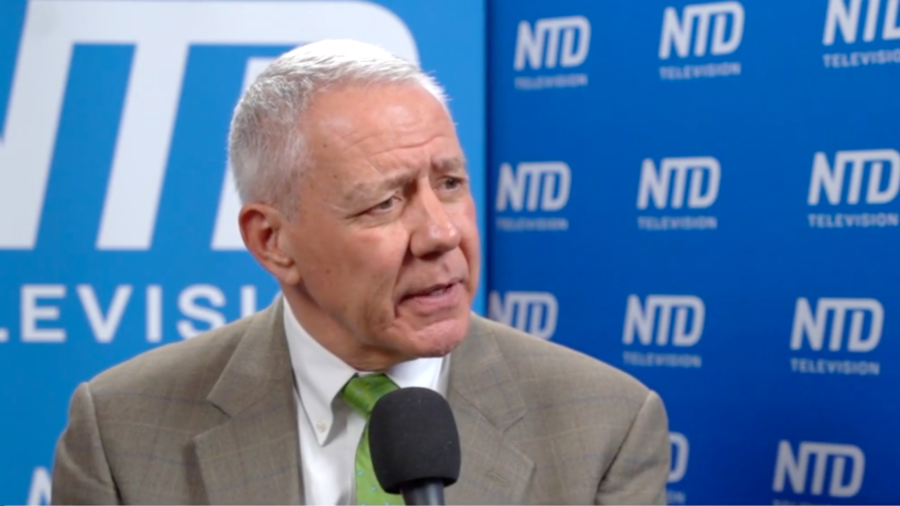Rep. Ken Buck (R-Colo.) rebuffed criticisms of the U.S. Supreme Court’s decision striking down race-based affirmative action admissions policies at U.S. colleges, arguing that students ought to embrace more merit-based measures for systems and educators should raise their K-12 education standards, especially in inner-cities.
In an interview with “The Hill” on NewsNation on Thursday, Buck said future generations of college students could look to Supreme Court Justice Clarence Thomas and Sen. Tim Scott (R-S.C.) as “role models who didn’t need affirmative action.”
The Supreme Court’s decision in Students for Fair Admissions Inc. (SFFA) v. President and Fellows of Harvard College elicited criticisms from proponents of affirmative action policies, who argued that rolling back those policies would hinder the progress in race relations since the Civil Rights era. Former President Barack Obama was one such critic who said, “Affirmative action was never a complete answer in the drive towards a more just society. But for generations of students who had been systematically excluded from most of America’s key institutions—it gave us the chance to show we more than deserved a seat at the table.”
When asked to address students who might agree with Obama’s assessment on affirmative action, Buck told “The Hill” students should “look to all sorts of role models that didn’t need affirmative action, worked hard in elementary school, middle school, high school, [who] were admitted to universities because of their achievement because of the merit of connections and grades.”
“Look to those [examples] as true role models and don’t rely on some give out or giveaway from some university or a government,” Buck added.
Buck also said President Joe Biden, who served as Obama’s Vice President, has also “got it all wrong” on affirmative action. On Thursday, Biden said he “strongly [disagrees] with the court’s decision” and “we need to remember the promise of America is big enough for everyone to succeed, that’s the work of my administration.”
The Colorado Republican argued that the affirmative action policies like the kind Obama and Biden defended led to unequal treatment and discrimination for white and Asian American students.
“If we want to do something about it . . . the gap between black student achievement and white student achievement, we should make sure that we have school choice in the inner cities, we should make sure that we take the teachers unions to task and allow more merit-based opportunities in the inner cities,” Buck said. “Those are things that will achieve what President Biden is talking about, not an artificial standard where a certain number of people based on race get into certain colleges.”
Corporate Affirmative Action
While the Supreme Court’s Thursday decision addressed race-based affirmative action in college admissions, it did not touch on how such policies may impact things like hiring and promotions practices in the job market.
During their interview, “The Hill” host Blake Burman noted Apple, American Airlines, Cisco, General Motors, and Google were among the corporations that backed Harvard and the University of North Carolina as they defended their affirmative action policies against challenges from SFFA. In an amicus brief (pdf) filed during the Supreme Court case, several of those corporations argued that they “have a significant interest in how universities consider and admit applicants” and “the capacity of universities to admit racially and ethnically diverse student bodies thus has deep importance” to those corporations.
Buck said that Thursday’s Supreme Court decision would have an impact on the private sector’s human resources practices.
“The idea that we’re going to treat people equally based on merit is something that corporations should look at also, and that’s exactly what these corporations need to do,” Buck said. “They need to make sure that they’re hiring based on merit. Discriminating against someone because of the fact that they’re Asian or the fact that they’re white is disgraceful.”
Buck said if corporations want to promote workforce diversity, they also should be willing to invest more in inner-city education.
“When a black student goes into a charter school in the inner city, the excellence that comes out of that charter school is comparable to any white suburban public school, and that’s what we need to do, is to make sure we improve K-12 education,” he added.

